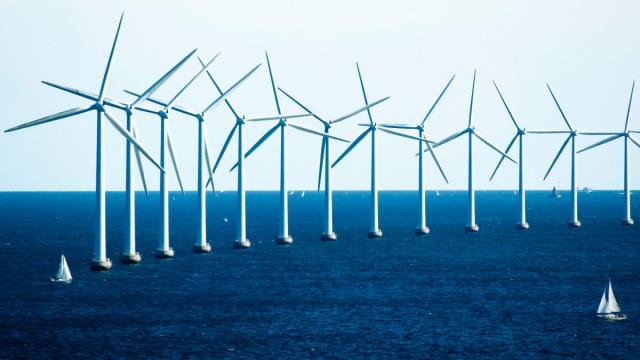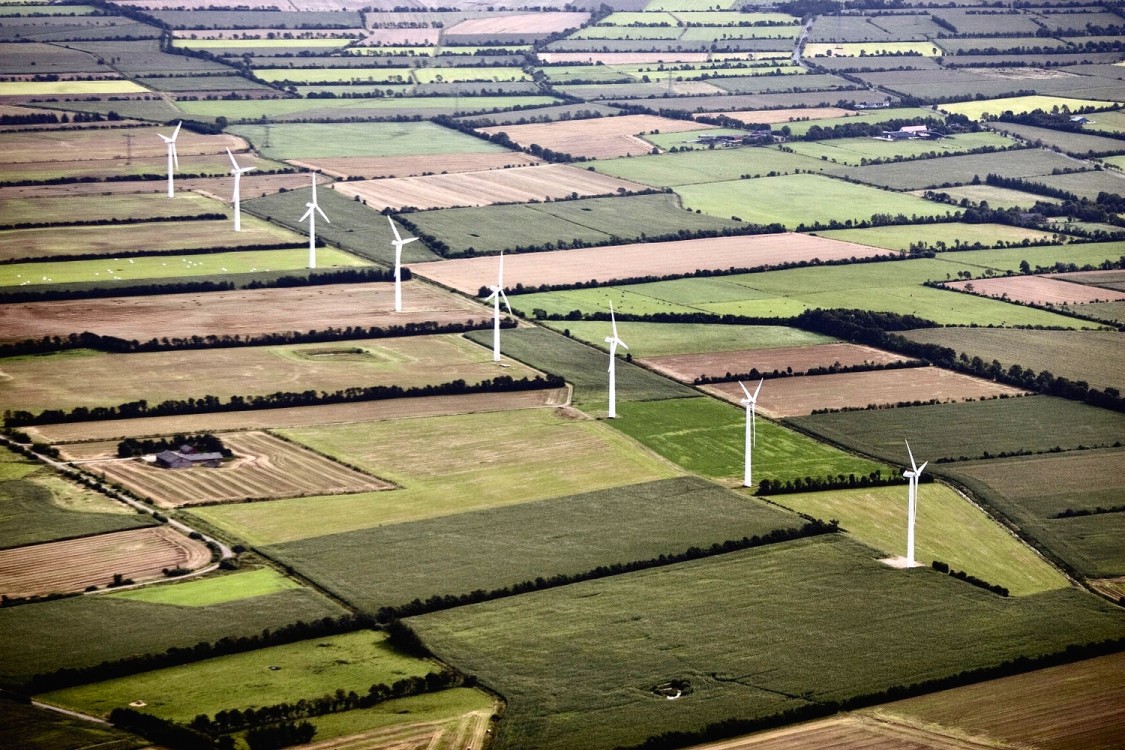
The small Scandinavian country of Denmark doesn't hold many minerals in its soil. Its supply of oil from the North Sea that has long contributed to the country's economy – not least thanks to the high taxes imposed on it – is slowly depleting. But one resource is in abundance here: wind. And the Danes are now busier than ever harnessing it.
Production of wind energy is taking a bigger and bigger share of the country's economy, as the export of wind turbines, technology, expertise and electricity has become one of the biggest Danish export industries. Denmark has turned itself into something of a showroom for the market; in the first quarter of this year, wind power contributed to 44 percent of the country's total electricity production, up from 39 percent in the same period last year.
And yet, even as the technology is effectively replacing fossil fuels, creating thousands of jobs, attracting investors and saving people's lungs from pollution, wind power is still facing resistance. On the one hand, Apple recently announced it intends to invest more than $870 million in a data center in Denmark because of the country's ability to deliver green energy. But at the same time, Denmark's leading right wing opposition party, Venstre, says it wishes to revoke Denmark's 2050 climate goals that would make the country 100% fossil free – despite that Venstre itself suggested those goals when it was in the former coalition government.
“We want green realism in the energy policy, so goals and means fit together. We must be ambitious without putting us so far ahead that the other countries are loosing us from sight,” the climate and energy spokesperson from Venstre, Lars Lilleholt, recently about party's turnaround.
The far right party Dansk Folkeparti (Danish People's Party) and the libertarian party, Liberal Alliance, are also skeptical about spending money on climate stabilizing technologies and solutions. They claim it is too expensive and that it prevents Denmark from being internationally competitive.
There's also, unsurprisingly, a fair amount of pushback coming from industry. While it's become part of conventional sales strategy to appear green, many companies are taking measures to greenwash while secretly working to prevent the spread of renewable energy. One of those is LEGO, famous for its building blocks for kids. The company has invested in offshore wind parks in Germany, where state subsidies are securing investors high rates of return on power bills.
But recently the Danish newspaper Politiken revealed that LEGO and other companies that claim to be going green are meanwhile members of a lobby group that is directly fighting the expansion of wind power. One of the main issues of the lobby group's agenda is to eradicate the exact type of state subsidies in Denmark that LEGO has benefited from in Germany.
The lobbying organization argues that since Denmark has already reached many of its climate goals, it should stop putting up wind turbines and remove the state subsidies promoting further investments in green energy.
But even as some companies are coming out against wind power, many others are turning a handsome profit from the country's green tech. Firms like Vestas, which produces wind turbines, continues to secure orders from across the world – including contracts in the U.S., China, India, Germany and Brazil, some of the world's leading energy consumers.
Politically there's been significant international attention paid to the Danish model of stable, renewable energy solutions. Everything from highly efficient central heating systems to power generated by garbage, biomass and the burning of gas from pig manure, have joined wind and solar as key components of Denmark's transformation from fossil fuels to clean energy.
Now, with elections in Denmark expected to be announced soon, environmental and climate change issues are anticipated to be high on the political agenda.
In the early 2000s, the parties now in opposition won the election and the government seat. One of their first actions was to cancel planned offshore wind parks and cut funding for research in renewable energy. But since then, more progressive mainstream opinion has taken over. Fearing looking like fools, most Danish politicians now no longer dare deny that climate change is affected by human behavior.
The current government plans to at minimum quadruple Danish wind power by 2050 – and unlike the conservative opposition, it wants to stick to the goals of reaching complete independence from fossil fuels by that year.
While wind power in Denmark started as grassroots experiments in the 1970s – originally to create more sustainable sources of power to grow the independence from oil, coal and nuclear power – the country's wind power has now reached far further than was hoped.
The voices arguing against wind energy appear as little more than a bump in the road to Denmark's greener future – and while the money remains so good, it's no surprise that even wind's former powerful enemies are more and more turning to support it.
3 WAYS TO SHOW YOUR SUPPORT
- Log in to post comments












